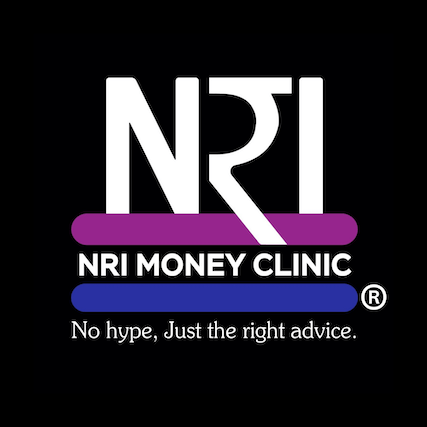We spend our lives working hard to create wealth — saving, investing, and planning for a comfortable future. But one critical question often goes unasked:
What happens to your wealth when you’re no longer around?
For many families, especially those with assets spread across countries, this is not just a financial issue but an emotional one. If you are an NRI with property or investments in India, have a dependent family member, or simply want to pass on your legacy smoothly, a family trust might be the answer.
Why a Family Trust is Becoming Essential
For decades, wills were the traditional way to plan for the transfer of wealth. But wills come with challenges:
They often lead to family disputes over interpretation.
Execution can be slow and tied up in legal procedures.
NRIs face added complexity with cross-border inheritance laws and tax rules.
A family trust offers a modern, efficient alternative.
It acts like a company for your family’s wealth, allowing you to:
Transfer assets while you are alive,
Appoint reliable managers (trustees) to handle them, and
Clearly define how and when beneficiaries receive their share.
The most powerful aspect? Unlike a will, a trust doesn’t end. It continues for generations, ensuring smooth management and distribution of wealth far into the future.
Who Should Consider Creating a Family Trust
Not everyone needs a family trust, but there are two strong reasons to consider one: your objectives and the size of your wealth.
1. Objective-Based Needs
Some situations make a family trust almost essential:
Dependent family members, such as a child with special needs who requires lifelong care.
NRIs with global assets, who face complicated cross-border tax and reporting obligations.
Families governed by specific inheritance laws, such as Sharia, who wish to structure inheritance differently.
Individuals who want to protect assets from disputes, creditors, or mismanagement.
2. Significant Wealth
If your assets in India are worth ₹10 crore or more, a family trust becomes a practical necessity.
Managing wealth of this scale remotely, especially for NRIs, is difficult. Without proper planning, these assets can become stuck in legal tangles or disputes. A trust simplifies management and provides stability.
Why a Family Trust Beats a Will
A will is a piece of paper. It only takes effect after your passing and often involves lengthy legal procedures. A family trust, on the other hand, is active during your lifetime, allowing you to oversee how your wealth is handled right now.
With a trust:
There is clarity and continuity, even after your lifetime.
Beneficiaries receive the benefits smoothly, without delays.
Disputes are minimized because everything is clearly defined from the start.
You create a structure that can last for decades or even centuries.
Think of it as setting up a safety vault for your family’s future, managed professionally, where rules are clear and long-term.
How a Family Trust Works
The structure of a family trust is straightforward yet powerful:
Settlor: The person who creates the trust and transfers assets into it (this is usually you).
Trustees: Trusted individuals or professionals appointed to manage the assets according to the rules you set.
Beneficiaries: The family members or loved ones who will benefit from the trust over time.
Imagine transferring your house, investments, or business shares into the trust. The trustees then manage these assets, and the beneficiaries enjoy the benefits — like rental income or dividends — while the principal wealth remains safe and protected.
This structure ensures your legacy is preserved, even if family members live in different parts of the world.
Choosing the Right Trustees
Trustees are at the heart of a family trust. Think of them as the board of directors of your family’s wealth. The wrong choice can lead to problems, while the right one ensures seamless management. Here’s what to keep in mind:
They must be competent and trustworthy.
Consider a mix of family members and professionals for balanced decision-making.
For NRIs, appointing local trustees is crucial to comply with Indian laws like FEMA and RBI regulations.
If you don’t have a suitable family member, you can appoint a professional trustee company to manage the trust.
The Tax and Compliance Angle
Creating a trust also involves tax obligations.
In India, the trust must file annual returns and pay tax on any income it generates.
For NRIs, there is an added layer of compliance: you must report your trust-related income in your country of residence.
Different countries have different laws, and these can change frequently.
For example, the UK recently updated its inheritance tax rules, impacting many NRIs living there.
Regular reviews with tax professionals are essential to stay compliant and avoid penalties or visa complications.
Common Mistakes to Avoid
Many families rush into creating a trust without proper planning. Avoid these pitfalls:
Poorly drafted documents:
A vague trust deed can lead to disputes later. Everything must be clearly defined, from rules to responsibilities.Wrong trustee selection:
Trustees who lack experience or integrity can mismanage your wealth.Ignoring global compliance:
NRIs must comply with tax laws in both India and their resident country.No regular reviews:
Family situations, wealth levels, and laws change over time. Update your trust regularly.Over-complicating control:
Provide trustees with clear guidelines but avoid micromanaging decisions.
Why You Should Act Now
The world has changed. Families today are more global, wealth is more complex, and tax rules are stricter than ever. A family trust is a future-ready solution that offers peace of mind.
It ensures:
Your family’s financial security,
Smooth and tax-efficient transfer of wealth, and
A legacy that lives on beyond you.
As inheritance expert Jatin Popat wisely says:
“Individuals are mortal, but a trust lives on. It’s the best way to protect your legacy and ensure your wealth is managed exactly as you intended.”
Conclusion
A family trust isn’t just for billionaires. It’s a practical tool for anyone with significant assets, complex family needs, or global financial responsibilities.
By setting up a trust, you’re not only protecting your wealth but also gifting your loved ones security, stability, and clarity for generations to come.
If you’ve worked hard to build your assets, don’t leave their future to chance.
Start planning today — because your legacy deserves to last forever.








